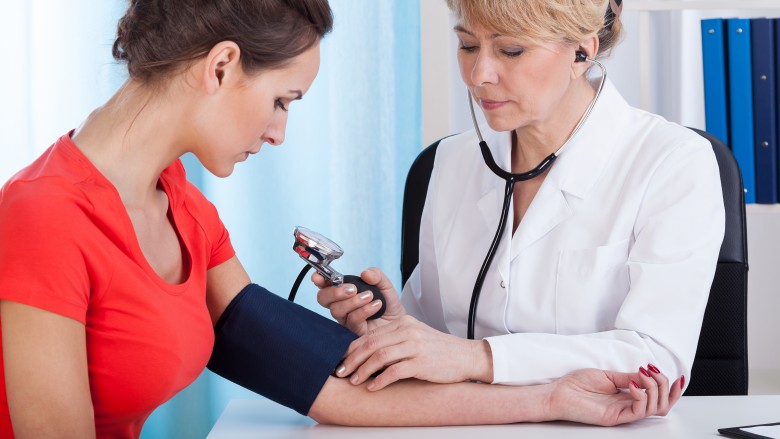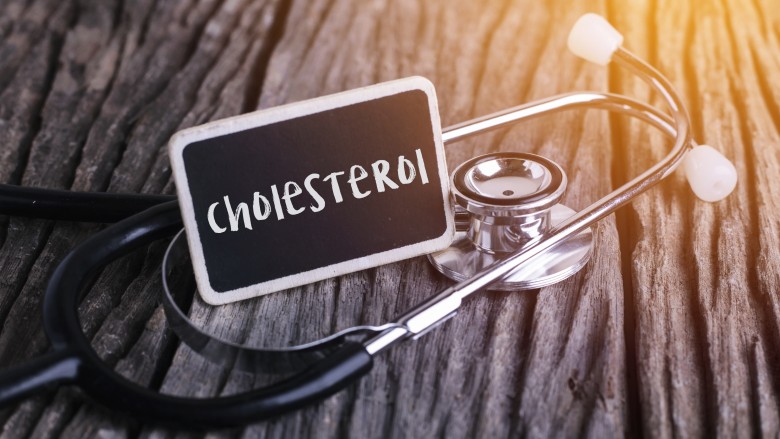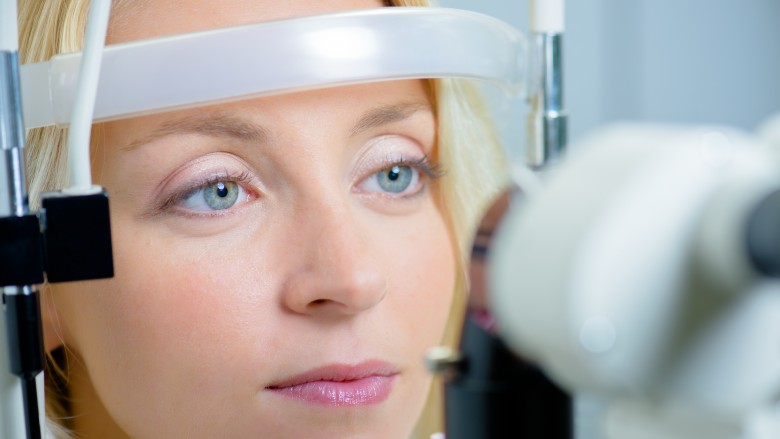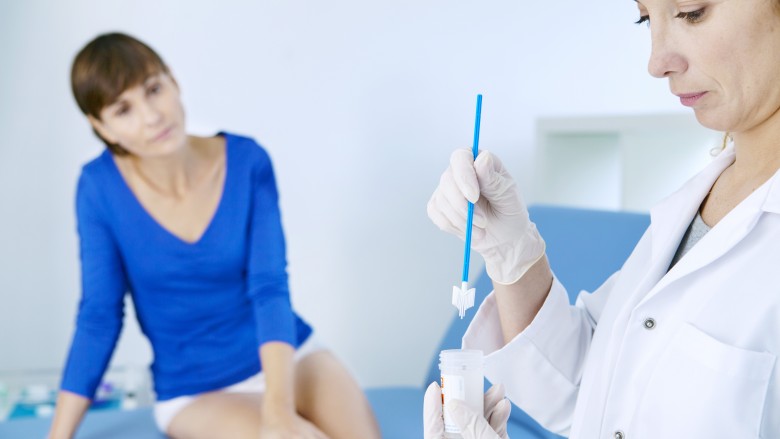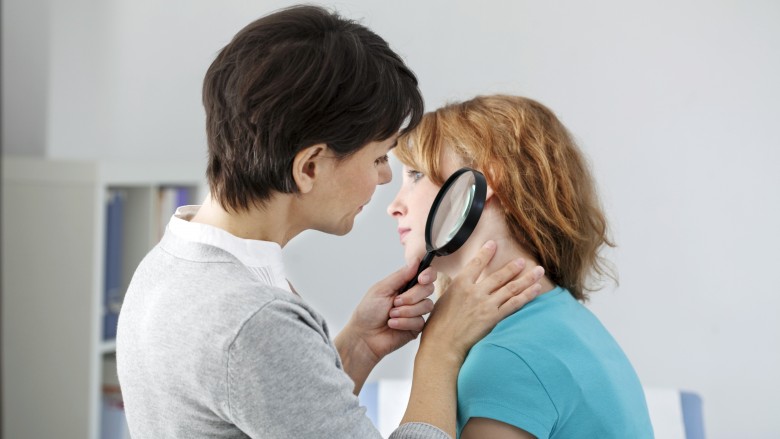Health Checks Every Woman Needs At 40
An ounce of prevention is worth a pound of cure. Has this formerly grandmas-only, repeatable refrain recently felt oh-so-relevant to you? When you're nearing the 40-times-around-the-Earth mark, you've learned a few things about life. Get sleep, exercise, and eat vegetables, and you'll be less likely to get sick, even when your kid's entire school is green around the gills.
You've learned to store emergency snacks and a portable stain-remover pen in your purse. It pays to be prepared! This kind of smart thinking and planning ahead is part of why you kick-ass at life. So it makes perfect sense to apply this attitude to your future health, and pay attention to expert recommendations about what health checks all women should get around the time they hit 40.
In addition to finding out what the official health department and CDC recommendations are, I was in contact with Dr. Sherry Ross, an expert in women's health, and a veteran OB/GYN in Santa Monica, who was named by The Hollywood Reporter as "one of the best doctors in Los Angeles." She weighed in with some valuable answers on my question: what health checks are important for women around 40?
Breast cancer screening
You've heard the phrase, "we caught it early," right? Anyone who has ever received really scary health news knows that these words offer hope and a saving grace. As Dr. Ross told me, "breast cancer affects one in eight women, so early detection is key."
As reported by WebMD, the American Cancer Society updated their recommendations regarding breast cancer screening in 2015. Where yearly mammograms were once recommended for women over 40, the new guidelines consider the potential risks of the screening, and weigh them against the benefits. According to cancer.org, new guidelines say "Women ages 40 to 44 should have the choice to start annual breast cancer screening with mammograms if they wish to do so," while "starting at age 45, women should get mammograms every year."
Dr. Ross said that mammogram testing should start at age 40, and "continue every one to two years depending on your history and risk factors." But that's not the beginning or end of breast cancer prevention and/or detection. Frequent self-checks (the government recommendation is once monthly), manual checks by your doctor whenever you get a pap smear, and even maintaining a healthy lifestyle are all important parts of disease prevention, Ross explained.
Heart health screening
Pay attention, ladies. Dr. Ross told me "heart disease is the leading cause of death in women. One in three women dies from this common disease." So even if you don't currently struggle with heart disease, you probably know someone who is or has, and there's a frighteningly high risk that you might in the future.
According to MedlinePlus, a public information site from the National Institutes of Health (NIH), which is part of the U.S. Department of Health and Human Services, women between ages 40 and 49 should have a physical exam every year. Their recommendations say part of this physical exam should include checking your "height, weight, and body mass index (BMI)," as well as a cholesterol check, if you have specific "risk factors for coronary heart disease."
Dr. Ross told me she recommends "[having] a conversation with your [primary care doctor] to discuss if additional testing such as an EKG or stress echocardiogram is necessary."
Blood pressure screening
For a 40 year old woman, the official government recommendation (coming from the NIH) regarding blood pressure is to "have your blood pressure checked once a year. If the top number (systolic number) is between 120 and 139 or the bottom number (diastolic number) is between 80 and 89 mm Hg or higher, have it checked every year."
However, the same recommendations state, "if the top number is greater than 140, or the bottom number is greater than 90, schedule an appointment with your provider," as these numbers might suggest reason for concern.
"Checking blood pressure, fasting glucose levels and checking body weight is also vital to avoid being at risk for hypertension, diabetes and heart disease," Dr. Ross added. And since getting your blood pressure checked is easy, why not check frequently? Pretty much any big name brand drug store or pharmacy has self-service machines on hand for public use, so why not check next time you pass one? Information is power, after all.
Cholesterol screening
The NIH advises that women "begin cholesterol screening between the ages of 40 to 45." If your levels are normal, and your doctor sees no cause for concern, then you can repeat the test just once every five years. However, those same recommendations also say, "if you have high cholesterol levels, diabetes, heart disease, kidney problems, or certain other conditions, you may need to be checked more often."
For instance, Dr. Ross said she actually tells her patients "a cholesterol screening/lipid profile . . . should be done yearly." So it may be wise to ask your doctor what she recommends for you specifically, given your health history.
Vision and eye health screening
If you don't wear glasses or contacts, chances are that you rarely even think about your eye health. However, vision can quickly deteriorate, and your eyes can say a lot about your overall health.
The NIH suggests you have an eye health exam "every 2 to 4 years ages 40 to 54," and "every year if you have diabetes." I emailed with Dr. Howard Purcell, an expert in vision as a doctor of optometry, and a senior vice president at Essilor, a vision company, and he definitely supports getting in to see your eye doctor. However, not every little yearly decrease in sharp vision may be cause to worry.
He said, "Right around 40 years old, women (and men, too) often report a realization that their arms are not long enough to hold their phone, tablet, book or menu far enough away to focus on it. Others report feeling they need to take their current glasses off to be able to see better up close. These are two of the many recognizable signs of presbyopia, an age-related condition that causes blurred near vision."
Dr. Purcell said he also advises against waiting for symptoms to appear before seeing an expert. "If you feel like you're having trouble seeing things at arm's length," he recommends, "visit your eye doctor to get a comprehensive eye exam and find a treatment that fits your lifestyle."
Pelvic exam and pap smear
If you are at no particular risk of cervical cancer, the Center for Disease Control (CDC) now supports the American Cancer Society's recommendation for screening for cervical cancer during a pap smear and pelvic exam every three years for women between 30 and 65 years of age.
However, if you are at a particular risk, you may need to be checked every year, or even more often. Dr. Ross stresses the fact that "women who are high risk for ovarian cancer, including those with a family history or test positive for . . . mutations, Ashkenazi women with a single family member with breast cancer before age 50 or with ovarian cancer, should have transvaginal pelvic ultrasounds and Ca 125 blood tests done every six months to one year along with pelvic examinations."
Basically, make sure your doctor knows your entire history, and ask her to help you decide how often you need an exam.
Skin cancer screening
Do you tan? Do you lie out in the sun? Have you ever forgotten to apply sunscreen and felt a bit of a sting on your hot cheeks? Honestly, even if none of these things apply to you, you still need to get your skin checked!
Skin cancers are so much more common than you think. According to studies cited by the Skin Cancer Foundation, "One in five Americans will develop skin cancer in the course of a lifetime." Yikes. Not only that, the Skin Cancer Foundation also states that "Women aged 49 and under have a higher probability of developing melanoma than any other cancer except breast and thyroid cancers."
The good news is that catching it early can make a big difference. Checking your own body for weird moles and any suspicious freckles can help, but you really need to see a professional to make sure your skin is healthy. As Dr. Ross put it, "It can be challenging to know the difference between a 'beauty mark' and an abnormal skin change." According to the CDC, the taskforce of experts in charge of designing recommendations for "asymptomatic adults" offers no official recommendation of how often you need your skin checked, however, Dr. Ross said that "melanoma and other skin cancers can be detected by seeing a dermatologist for a mole check yearly."
Your best health ever
Staying on top of your health is nearly a fulltime job, but anyone who has struggled with health problems will tell you that prevention and early-detection is worth the extra effort. Remember, these screening recommendations have science to back them, but as most doctors will tell you, they're based on averages, and not your particular, individual case. If your body is telling you something, listen to it!
According to MedlinePlus, "Even if you feel fine, you should still see your provider for regular checkups. These visits can help you avoid problems in the future." Especially if you have something atypical going on with your health or your body, your doctor might recommend a different course of action that will be best for you.



